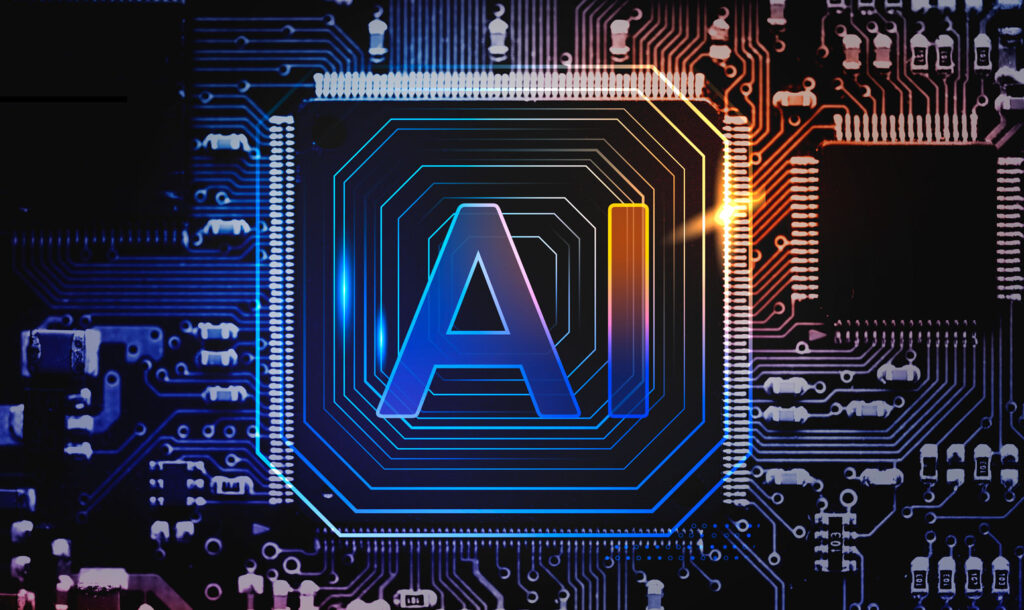Beyond Generative AI: Unlocking the Value of AI for Businesses
Published Date: November 15, 2023

Nothing has quite captured the public’s imagination and interest in the way that ChatGPT has recently. With its ability to engage in human-like, natural language conversation and provide coherent, nuanced, and contextually relevant responses in real time, it has spurned a deep fascination with artificial intelligence (AI) and its wider capabilities. From casual users who want to make their lives easier to workers who are seeking to boost their productivity, ChatGPT made AI accessible to virtually everyone. Now, bigger questions are being posed: Can one leverage AI for business? Will the way organizations operate fundamentally change because of enterprise AI platforms? Will enterprise AI result in significant business outcomes?
AI's Storied History
Despite the fevered buzz around ChatGPT and many equating its launch with the birth of AI, the technology is far from new. Since the term was first used in the early 1950s, artificial intelligence has been widely studied and huge developments have been made, largely due to computers being able to store more information and becoming cheaper, faster, and more accessible. Chatbots have always been the favored manifestation of AI, starting in 1960 with ELIZA, the first chatbot designed to simulate human conversations. Over time, big leaps in AI led to the development of machines capable of mobility, speech, and pattern recognition that are used for various applications, intelligent consumer devices, and even driverless vehicles. Portable devices such as smartphones and wearables have given rise to digital assistants such as Siri and Amazon Alexa that provide a personalized, conversational experience, answer questions, make recommendations, and perform tasks.
AI Beyond ChatGPT
While ChatGPT is the best example in today’s context, making it the catchall term for AI is a disservice to the overall technology. And although it is arguably the most popular and successful implementation of generative AI to date, subfields such as computer vision, machine learning expert systems, and robotics have also made great strides in advancing AI over the past years. In fact, a lot of applications that pervade our everyday lives are based on AI without us even knowing it.
For instance, our touchscreen devices such as smartphones and tablets rely on AI to ensure that our fingers provide precise input so that we make fewer typing errors. When mapping our driving or walking routes on Google Maps, the app provides recommendations on the optimal route to take and provides an accurate estimated time of arrival based on the traffic history data in the area. Wondering why we end up liking the TV shows or films that our streaming services recommend? AI analyzes our digital consumption habits as well as our search and watch history to learn about our preferences and make appropriate and personalized recommendations. Overall, artificial intelligence is radically changing the way we work, communicate, and learn, and many businesses are keen to take advantage of the attention and interest that it is garnering.
Business Applications of AI
With the accelerated entry of AI solutions into the market, the technology is already shaping businesses and creating unprecedented economic opportunities across all industries. Companies such as JPMorgan Chase, Boeing, Netflix, and Johnson & Johnson have already begun capitalizing on AI, aware that the technology is bound to make bigger waves and is here to stay.

Here are some examples of how AI is making waves in the business landscape:
AI in Marketing. According to a 2018 McKinsey report, marketing stands to gain the greatest value from AI. Marketers now use AI for content generation, audience segmentation, customer service chatbots, ecommerce, programmatic advertising, and SEO with the goal of measuring KPIs more accurately, enhancing their CRM capabilities, getting more meaningful insights from customer data, faster decision-making, and improving ROI.
AI in Manufacturing. Digitized operations in factories give organizations with more data that they can make sense of. With AI, manufacturers can automate defect detection, improve quality assurance, workforce planning, and employee safety, integrate assembly lines, and design new product iterations so they can optimize their supply chain, accelerate R&D, and increase their throughput.
AI in Education. How we learn has evolved significantly throughout the years. AI improves student outcomes with personalized learning experiences, intelligent tutoring, automated grading and real-time feedback, and learning analytics to identify areas for improvement and enable data-driven interventions.
AI in Government. Making public services more readily accessible, improving safety, and enriching its citizens’ overall quality of life are top priorities for governments all around the world. AI makes it possible to deliver efficiency in public operations, detect health and security threats faster, make smart policy decisions, and even create more sustainable cities.
AI in Healthcare. Beyond medical transcription, robots are now used to automate surgeries so they are more precise and less invasive. Health tracking with wearable devices is allowing doctors to make more accurate medical diagnoses and administer treatment, with some programs adopting AI to help interpret body scans to detect harmful growths faster.
Unsurprisingly, more and more businesses and enterprises are looking to harness AI to address specific needs, improve operational efficiencies and performance, reduce costs, make better decisions faster, deliver innovative products and services, identify untapped opportunities, mitigate or avoid unknown risks, and more.
Making AI Work for You
Artificial intelligence, once a tool reserved for big organizations, is now becoming more accessible to everyone. However, some companies are hesitant. They either lack expertise or are confused by the many options, making it hard for them to see how AI can help their unique problems.
Xurpas AI Lab (XAIL) was developed to address the needs of businesses with regards to AI implementation. Our solutions portfolio leverages the best third-party AI platforms, that can be customized to specifically address unique business requirements. In addition, our team of independent, technology-agnostic experts can guide organizations to set-up and implement AI throughout their business regardless of their current readiness, guiding them at every step of the way. The goal of XAIL is to help businesses create new innovations and optimize processes through the power of AI and data science, enabling them to get tangible results.
Curious about AI? Schedule a call with our AI experts to kickstart your AI journey today.

